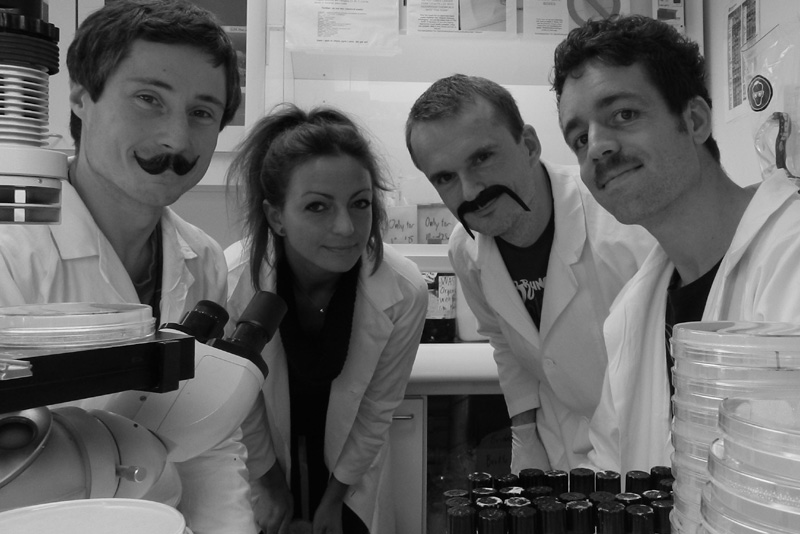Jorrit Enserink's team with PNAS publication on the cyclin dependent kinase CDK1

The cell cycle is the mechanism by which a cell divides. The cell cycle must be strictly controlled; several human diseases, like cancer, are caused by cells that have lost control over the cell cycle. Cdk1 is the master regulator of the cell cycle, and CDK activity is aberrantly upregulated in most forms of human cancer. It is therefore very important to understand how CDKs control the cell cycle.
CDK1 does not function alone, but it cooperates with other genes to regulate the cell cycle. However, the identity of these genes has remained poorly understood. In a recent paper, a team of researchers headed by Jorrit Enserink has determined a large number of genes that cooperate with CDK1 using the model organism budding yeast (S. cerevisiae).
This genetic network of CDK1 was unraveled by Christine Zimmermann, who performed these experiments in the internationally renowned laboratory of Dr. Richard Kolodner at UCSD. By unraveling this genetic network, Christine identified numerous cellular processes that were not previously known to involve Cdk1.
The researchers also discovered that the availability of free ubiquitin, a small protein that becomes attached to other proteins to control their function, is important for efficient entry into the cell cycle. They subsequently identified the E2 ubiquitin conjugase Rad6 and the E3 ubiquitin ligase Bre1 as the proteins that use ubiquitin to regulate the cell cycle. In particular, Pierre Chymkowitch and Vegard Eldholm showed that Rad6 and Bre1 use ubiquitin to promote transcription of cyclins. The increased levels of cyclins then activate Cdk1 to induce cell cycle entry.
Rad6, Bre1 and Cdk1 are highly conserved from yeast to humans, and because cyclins are often overexpressed in many forms of cancer, the findings may have important ramifications for cancer research.

Links:
Zimmermann C, Chymkowitch P, Eldholm V, Putnam CD, Lindvall JM, Omerzu M, Bjørås M, Kolodner RD, Enserink JM
A chemical-genetic screen to unravel the genetic network of CDC28/CDK1 links ubiquitin and Rad6-Bre1 to cell cycle progression
Proc Natl Acad Sci U S A
Links to: PubMed - PNAS
Laboratory of Molecular Biology (headed by Magnar Bjørås)
